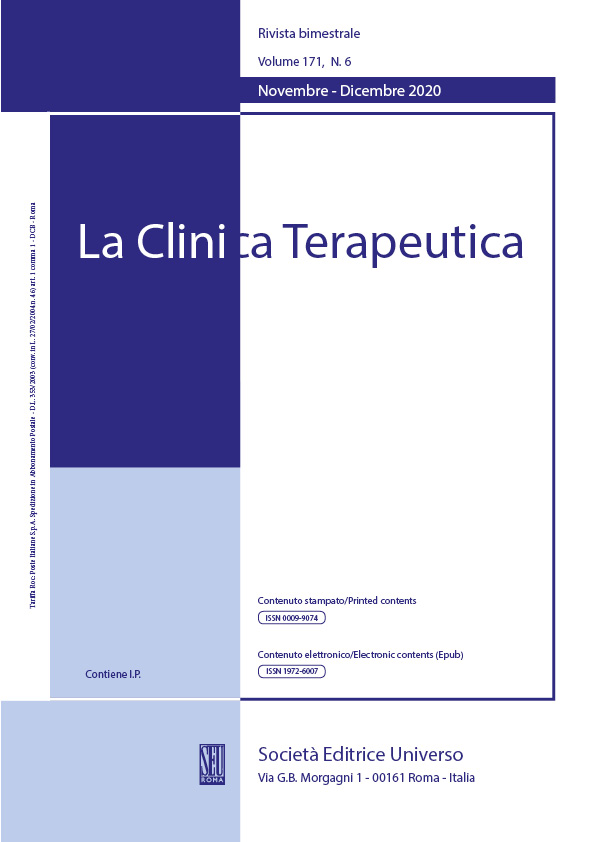Abstract
Introduction. Multiple chemical sensitivity (MCS), is a syndrome characterised by increased sensitivity to the exposure of environmental chemicals (1).
There are considerable difficulties in reaching a good estimate of the prevalence of disease and the main pathogenetic hypotheses take into account both the organic and psychiatric/psychological factors.
Treatment with epidermal growth factor tyrosine kinase receptor inhibitors (tkis), like Osimertinib, results in improved progression-free survival (PFS) compared to chemotherapy, in Non-small-cell lung carcinoma (NSCLC) with epidermal growth factor receptor (EGFR) mutation (2).
Case report. We describe the case of a 74 year old woman with history of MCS and fibromyalgia in treatment with Osimertinib for EGFR-mutated NSCLC.
Patient initially refused any form of active therapy for lung cancer, but thanks to teamwork and the important support of the psychologist, the patient decided to start treatment with Osimertinib at a reduced dose, not 80 mg but 40 mg.
Subsequently, after few days , of his own free will and without informing the staff physicians, the patient changed the treatment schedule by taking one quarter of the dose of the medicine every other day, justifying this choice in therapeutic modification because of her fear and intolerance to any type of medicine and/ or chemical substance, being influenced by MCS.
Management & outcome. Despite the changes in the treatment plan, a PET scan performed after two months showed a sigificative lung response and the stability of bone metastases.
Discussion. Our case describes a significative response with Osimertinib despite the change in dosage and schedule in a patient with MCS.
Our experience deserves to be considered in the light of its particularity and uniqueness as it shows an excellent response to treatment with Osimertinib despite the change made to the dosage and schedule, in a patient presenting in her medical history this rare pathological condition: MCS syndrome.
